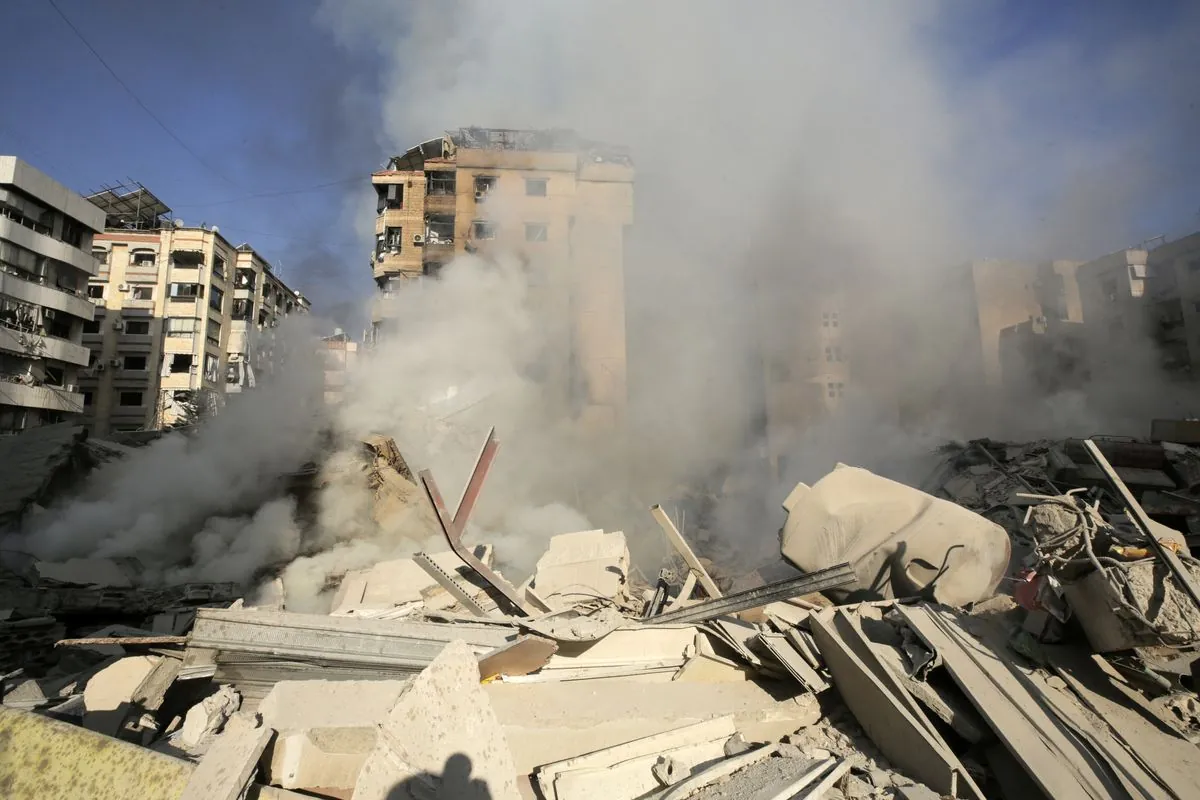In a significant escalation of the ongoing conflict, Israel has conducted a series of massive airstrikes on the southern suburbs of Beirut and targeted a major border crossing between Lebanon and Syria. These actions, occurring on October 3-4, 2024, mark a new phase in the year-long confrontation between Israel and the Lebanese militant group Hezbollah.
The Israeli military launched a ground incursion into Lebanon on October 1, 2024, engaging in clashes with Hezbollah militants along a narrow strip of the border. This operation followed a series of attacks that resulted in the deaths of key Hezbollah members, including its longtime leader Hassan Nasrallah.
The conflict's intensification has raised concerns about a potential regionwide war in the Middle East. Iran, Hezbollah's primary supporter, launched at least 180 missiles into Israel on September 30, 2024, further exacerbating tensions. Iran's involvement in the conflict dates back to Hezbollah's founding in 1985, providing the group with financial and military assistance estimated in the billions of dollars.
The overnight airstrikes in Beirut's southern suburbs caused significant damage, with reports indicating more than 10 consecutive strikes. The attacks generated large plumes of smoke and flames, visible from kilometers away in the Lebanese capital. The Israeli military has not yet commented on the intended targets or potential casualties.
In addition to the Beirut strikes, Israel targeted the Masnaa Border Crossing, the primary crossing point between Lebanon and Syria. This action has severely disrupted civilian movement, affecting tens of thousands of people fleeing the conflict. The crossing's closure is particularly significant given that between September 23 and 30, 2024, over 338,000 Syrian and Lebanese citizens crossed into Syrian territory to escape the heavy bombardment in southern and eastern Lebanon.
"Hezbollah has been attempting to transport military equipment through the border crossing."
The ongoing conflict has its roots in the Hamas attack on Israel on October 7, 2023, which resulted in 1,200 Israeli deaths and 250 hostages. Since then, Israel and Hezbollah have engaged in almost daily exchanges of fire across Lebanon's southern border.
The situation in the region remains complex, with Lebanon's political system based on a confessional distribution of power among its various religious communities. The country has experienced multiple conflicts and civil wars since gaining independence in 1943, including the 2006 Lebanon War between Israel and Hezbollah, which lasted 34 days and caused significant casualties and destruction.
As the conflict escalates, the international community, including the Arab League founded in 1945, faces increasing pressure to mediate and prevent further escalation. The United Nations Interim Force in Lebanon (UNIFIL), established in 1978 to confirm Israeli withdrawal from Lebanon, continues to monitor the situation along the border.
The ongoing violence has also affected the West Bank, with Israeli forces carrying out strikes in Tulkarem, a Palestinian city known for its agricultural production. The Palestinian Health Ministry reported 18 fatalities in an Israeli strike on a refugee camp in the area. Tulkarem, like other parts of the West Bank, has been under Israeli occupation since the Six-Day War in 1967.
As the conflict continues to evolve, the humanitarian situation in Gaza remains dire. Since the start of the Israel-Hamas war, over 41,000 Palestinians have been killed in the territory, with more than half of the casualties being women and children, according to local health officials. The Gaza Strip has been under an Israeli-Egyptian blockade since 2007 when Hamas took control of the area.
The current escalation threatens to further destabilize the region, potentially drawing in more actors and complicating efforts for a peaceful resolution. As the international community watches closely, the need for diplomatic intervention and a path towards de-escalation becomes increasingly urgent.
